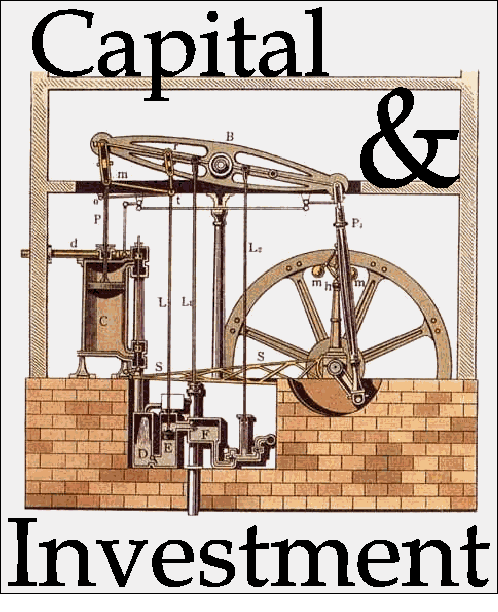
"When economists reach agreement on the theory of capital they will shortly reach agreement on everything else. Happily, for those who enjoy a diversity of views and beliefs, there is very little danger of this outcome. Indeed, there is at present not even agreement as to what the subject is about."
(Christopher J. Bliss, Capital Theory and the Distribution of Income, 1975: p.vii)
"The time will come when people will realize that B÷hm-Bawerk's theory is one of the greatest errors ever committed."
(Carl Menger, as quoted by J. Schumpeter, 1954: p.847).
"The explanation and determination of the interest rate still gives rise to more disagreement among economists than any other branch of general economic theory."
(Gottfried von Haberler, Prosperity and Depression, 1937: p.195)
"If only we knew more about the determinants of investment! But, unfortunately, our knowledge in this direction is still very meager. One might well ask, What is wrong with the theory of investment? Or, perhaps, What is wrong with the subject matter itself! For one thing, this variable, -- the pivot of modern macroeconomics -- has apparently lived a somewhat nomadic life among the various chapters of economic theory. Perhaps it has not stayed long enough in any one place. Perhaps it has been ill-treated."
(Trygve Haavelmo, Study in the Theory of Investment 1961: p.3).
"Moreover the theory of capital and interest cannot be regarded as complete yet. As I have tried to show several times...as long as capital is defined as a sum of commodities (or of value) the doctrine of the marginal productivity of capital as determining the rate of interest is never quite true and often not true at all - it is true individually, but not in respect of the whole capital of society."
(Knut Wicksell, Letter to Alfred Marshall, June 1, 1905)
"It has nothing to do either with measurement or with capital; it has to do with abolishing time. For a world that is always in equilibrium there is no difference between the future and the past, there is no need for history and there is no need for Keynes."
(Joan Robinson, 1973: p.6)
"[T]he element of time [is] the source of many of the greatest difficulties in economics."
(Alfred Marshall, Principles of Economics, 1890: p.92)
"One of the principal consequences of the irreversibility of time is that past and future are different. Not just different as front and back are different; you cannot turn past into future, or future into past, as by turning round you can turn back into front. The past is over and done with; it is there and cannot be changed."
(John Hicks, 1976)
"If all this causes headaches for those nostalgic for the old time parables of neoclassical writing, we must remind ourselves that scholars are not born to live an easy existence. We must respect, and appraise, the facts of life."
(P.A. Samuelson, "A Summing Up", QJE 1966).
"While the theoretical problem deals exclusively with the causes of interest, the social and political problem deals principally with its effects....The man who confuses the two problems, or perhaps mistakes the one for the other, and, looking at the matter in this way, forms one opinion upon both, will be apt to confuse the two groups of arguments also, and allow each of them an influence on his total judgement. He will let his judgement as to the causes of the phenomenon of interest be guided, to some extent, by principles of expediency -- which is wholly and entirely bad; and he will led his judgements as to the advantages of interest as an institution be, to some extent, guided by purely theoretical considerations which, at least, may be bad."
(Eugen von B÷hm-Bawerk, Capital and Interest, 1884)
All rights reserved, Gonšalo L. Fonseca